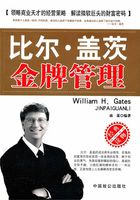[The last half is literally "one who, conquering, excels in easy conquering." Mei Yao-ch`en says: "He who only sees the obvious, wins his battles with difficulty; he who looks below the surface of things, wins with ease."]
12. Hence his victories bring him neither reputation for wisdom nor credit for courage.
[Tu Mu explains this very well: "Inasmuch as his victories are gained over circumstances that have not come to light, the world as large knows nothing of them, and he wins no reputation for wisdom; inasmuch as the hostile state submits before there has been any bloodshed, he receives no credit for courage."]
13. He wins his battles by making no mistakes.
[Ch`en Hao says: "He plans no superfluous marches, he devises no futile attacks." The connection of ideas is thus explained by Chang Yu: "One who seeks to conquer by sheer strength, clever though he may be at winning pitched battles, is also liable on occasion to be vanquished; whereas he who can look into the future and discern conditions that are not yet manifest, will never make a blunder and therefore invariably win."]
Making no mistakes is what establishes the certainty of victory, for it means conquering an enemy that is already defeated.
14. Hence the skillful fighter puts himself into a position which makes defeat impossible, and does not miss the moment for defeating the enemy.
[A "counsel of perfection" as Tu Mu truly observes.
"Position" need not be confined to the actual ground occupied by the troops. It includes all the arrangements and preparations which a wise general will make to increase the safety of his army.]
15. Thus it is that in war the victorious strategist only seeks battle after the victory has been won, whereas he who is destined to defeat first fights and afterwards looks for victory.
[Ho Shih thus expounds the paradox: "In warfare, first lay plans which will ensure victory, and then lead your army to battle; if you will not begin with stratagem but rely on brute strength alone, victory will no longer be assured."]
16. The consummate leader cultivates the moral law, and strictly adheres to method and discipline; thus it is in his power to control success.
17. In respect of military method, we have, firstly, Measurement; secondly, Estimation of quantity; thirdly, Calculation; fourthly, Balancing of chances; fifthly, Victory.
18. Measurement owes its existence to Earth; Estimation of quantity to Measurement; Calculation to Estimation of quantity;Balancing of chances to Calculation; and Victory to Balancing of chances.
[It is not easy to distinguish the four terms very clearly in the Chinese. The first seems to be surveying and measurement of the ground, which enable us to form an estimate of the enemy's strength, and to make calculations based on the data thus obtained; we are thus led to a general weighing-up, or comparison of the enemy's chances with our own; if the latter turn the scale, then victory ensues. The chief difficulty lies in third term, which in the Chinese some commentators take as a calculation of NUMBERS, thereby making it nearly synonymous with the second term. Perhaps the second term should be thought of as a consideration of the enemy's general position or condition, while the third term is the estimate of his numerical strength.
On the other hand, Tu Mu says: "The question of relative strength having been settled, we can bring the varied resources of cunning into play." Ho Shih seconds this interpretation, but weakens it. However, it points to the third term as being a calculation of numbers.]
19. A victorious army opposed to a routed one, is as a pound's weight placed in the scale against a single grain.
[Literally, "a victorious army is like an I (20 oz.) weighed against a SHU (1/24 oz.); a routed army is a SHU weighed against an I." The point is simply the enormous advantage which a disciplined force, flushed with victory, has over one demoralized by defeat." Legge, in his note on Mencius, I. 2. ix. 2, makes the I to be 24 Chinese ounces, and corrects Chu Hsi's statement that it equaled 20 oz. only. But Li Ch`uan of the T`ang dynasty here gives the same figure as Chu Hsi.]
20. The onrush of a conquering force is like the bursting of pent-up waters into a chasm a thousand fathoms deep.
V. ENERGY
1. Sun Tzu said: The control of a large force is the same principle as the control of a few men: it is merely a question of dividing up their numbers.
[That is, cutting up the army into regiments, companies, etc., with subordinate officers in command of each. Tu Mu reminds us of Han Hsin's famous reply to the first Han Emperor, who once said to him: "How large an army do you think I could lead?" "Not more than 100,000 men, your Majesty." "And you?"asked the Emperor. "Oh!" he answered, "the more the better."]
2. Fighting with a large army under your command is nowise different from fighting with a small one: it is merely a question of instituting signs and signals.
3. To ensure that your whole host may withstand the brunt of the enemy's attack and remain unshaken - this is effected by maneuvers direct and indirect.
[We now come to one of the most interesting parts of Sun Tzu's treatise, the discussion of the CHENG and the CH`I." As it is by no means easy to grasp the full significance of these two terms, or to render them consistently by good English equivalents; it may be as well to tabulate some of the commentators' remarks on the subject before proceeding further.
Li Ch`uan: "Facing the enemy is CHENG, making lateral diversion is CH`I. Chia Lin: "In presence of the enemy, your troops should be arrayed in normal fashion, but in order to secure victory abnormal maneuvers must be employed." Mei Yao-ch`en:















